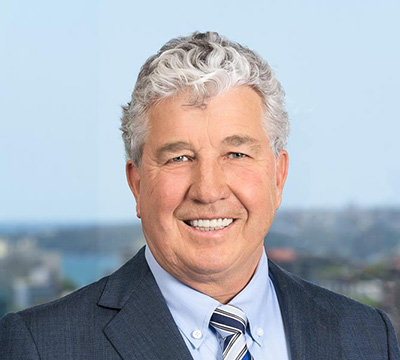Personal Injury Lawyers Rental Property Compensation Claims
Have you been injured at a rental property? Our expert team of public liability claim lawyers will fight for the compensation you deserve.
Stacks Goudkamp Services
PUBLIC LIABILITY COMPENSATION CLAIMS
Rental Property Injury Compensation Claims
When you rent a property, you have the right to live in a safe and secure environment. Rental property injuries can have devastating consequences for your health and wellbeing, particularly when they occur in what should be the safety of your own home due to landlord or property manager negligence.
Rental property injuries can occur in many ways and locations. These preventable incidents include fires as a result of faulty electricity supply, injuries from falling lights or fixtures, tripping and falling on unsafe decks or floorboards, balcony collapses, slipping and falling on wet floors due to leaking roofs or air conditioning units, accidents due to defective roofs, injuries on unsafe footpaths and driveways, falls from faulty railings, accidents involving unsafe stairs, trips on potholes and uneven ground, and exposure to mould or other hazardous conditions. Even routine daily activities can result in life-changing consequences when landlords fail to maintain safe rental premises or address known hazards.
Beyond the immediate physical harm, rental property injuries often lead to ongoing medical treatments, rehabilitation needs, time off work, reduced earning capacity, and significant financial strain through lost income and mounting medical expenses, all while dealing with the stress of being injured in your own home.
At Stacks Goudkamp, we understand the profound impact rental property accidents can have on your life and financial security. Our experienced personal injury lawyers have extensive experience helping tenants injured on rental properties throughout NSW in securing the compensation they deserve and holding landlords accountable for maintaining safe premises.
If you have been injured on a rental property due to unsafe conditions or inadequate maintenance and suspect negligence played a role, our specialists can help determine if you have grounds for a successful claim.
Contact your local team for a personal consultation to find out if you are eligible to make a claim. Call 1800 950 378 or contact us today.
Understanding Rental Property Injury Claims
Every rental property injury claim in NSW is different, and most cases involve complex legal considerations that require establishing who had responsibility for maintaining the property where your accident occurred.
The starting point in understanding whether you may have a rental property compensation claim is to contact Stacks Goudkamp to discuss your individual circumstances during a free initial assessment.
Rental property injury claims are particularly challenging because they require identifying all potentially responsible parties and proving that they breached their duty of care to maintain safe premises. These cases can be difficult to establish without proper legal investigation that examines landlord obligations, property management agreements, owners corporation responsibilities, and tradesperson liability.
What makes these claims especially complex is that multiple parties may share responsibility for your injury, including landlords who own the property, real estate agents or property managers who may have assumed management obligations, owners corporations in apartment complexes responsible for common areas, and tradespeople who performed inadequate repairs or maintenance.
However, all rental property stakeholders owe tenants a duty of care under the Civil Liability Act 2002 (NSW) and the Residential Tenancies Act 2010 (NSW), as well as common law obligations. As a tenant, you have the right to live in safe and secure premises, reside in a property kept in reasonable repair, live in a property that is inspected to identify risks of harm, and have faulty or defective fixtures removed and adequately replaced.
If these parties breach their duty through negligent acts or omissions that cause injury, you may be entitled to compensation for your losses. Landlords, property managers, and other responsible parties must carry appropriate insurance which is activated through successful claims.
Why Choose Stacks Goudkamp For Your Rental Property Injury Claim?
Our experienced personal injury lawyers have extensive experience representing tenants injured on rental properties throughout NSW. We understand the unique challenges these cases present and the significant impact that rental property accidents can have on your physical health, wellbeing, and financial security.
We know that pursuing a rental property injury claim, while dealing with injuries and the stress of being hurt in your own home, can feel overwhelming. Our knowledgeable personal injury solicitors provide clear guidance through every step of the process, handling the complex legal aspects so you can focus on your recovery.
Stacks Goudkamp has built an outstanding reputation in rental property injury claims. We work closely with experienced investigators, building experts, and medical professionals who can precisely identify where landlords, property managers, or other responsible parties failed in their duty of care. Our meticulous approach to gathering evidence, including correspondence with landlords, maintenance records, and expert assessments, has resulted in numerous successful outcomes for our clients.
We understand that each rental property injury case is unique, involving different types of properties, responsible parties, and accident circumstances. Whether your accident involved structural defects, electrical faults, inadequate maintenance, or unsafe conditions, we tailor our approach to your specific circumstances and needs.
In your free initial rental property injury assessment, we will advise you on whether you have a viable claim, identify all potentially responsible parties, explain applicable time limits, and outline our No Win, No Fee agreement. We handle rental property injury claims on a No Win, No Fee basis, meaning you pay no legal fees unless you are successful. We also advance all expenses during your claim, including investigation costs, expert reports, and medical assessments. In any event, if your public liability claim is successful the insurer will pay a large portion of your legal fees.
If you have been injured on a rental property, contact Stacks Goudkamp today for a free, no-obligation consultation. Our experienced personal injury lawyers will listen to your experience, assess the circumstances of your accident, and explain how we can help secure the compensation you deserve for your injuries and losses.
Contact your local team for a personal consultation to find out if you are eligible to make a claim. Call 1800 251 800 or contact us today.
I would just like to thank Tom and Megan, as well as anyone who has been involved behind the scenes. From the get go you have all made me feel well informed & well supported. There was never a moment where I doubted that you all had my best interests at heart & that I could be confident
I would just like to thank Tom and Megan, as well as anyone who has been involved behind the scenes. From the get go you have all made me feel well informed & well supported. There was never a moment where I doubted that you all had my best interests at heart & that I could be confident
Read More Read Less
in being guided by your recommendations. I personally have struggled with the process of continuously recounting my experiences and focusing on the prospective issues I am likely to have from my injuries, but I am glad that we all stuck it out to the end & got a result I am very happy with and thankful for.

FREQUENTLY ASKED QUESTIONS
RENTAL PROPERTY INJURY Compensation Claims
What types of rental property injuries can I claim compensation for?
Rental property injuries that may qualify for compensation include:
- Fires as a result of faulty electricity supply
- Injuries from falling lights or defective fixtures
- Tripping and falling on unsafe decks or floorboards
- Balcony collapses due to structural defects
- Accidents caused by defective roofs or ceiling collapses
- Injuries on unsafe footpaths and driveways
- Falls from faulty railings or balustrades
- Falls from unsafe or poorly maintained bunk beds
- Trips on potholes and uneven ground around the property
- Falling down unsafe or poorly maintained stairs
- Exposure to mould or other hazardous conditions
- Injuries from faulty plumbing causing flooding or electrical hazards
- Accidents due to inadequate lighting in common areas
- Injuries from defective doors, windows, or security features
To establish a valid rental property injury claim, you must prove that the landlord, property manager, or other responsible party breached their duty of care by failing to maintain safe premises or address known hazards.
At Stacks Goudkamp, our experienced personal injury lawyers carefully assess whether those responsible for your rental property failed in their obligations to provide safe accommodation.
Who can be held liable for rental property injuries?
Various parties can be held liable for rental property injuries, including:
- Landlords (property owners) who have ultimate responsibility for property safety
- Real estate agents and property managers who may have assumed management obligations
- Owners corporations in apartment complexes responsible for common areas and building maintenance
- Strata management companies overseeing building operations
- Tradespeople who performed inadequate or defective repairs
- Construction companies responsible for building defects
- Local councils for public areas adjacent to rental properties
- Utility companies for faulty services causing accidents
- Previous tenants in rare circumstances involving dangerous modifications
The key factor is determining who had control and responsibility for the area where your accident occurred. In some cases, multiple parties may share liability for your rental property injury, particularly in apartment complexes where responsibility may be divided between landlords, owners corporations, and managing agents.
At Stacks Goudkamp, we thoroughly investigate all potentially responsible parties to ensure your rental property injury claim is comprehensive and properly directed.
How do you prove negligence in a rental property injury claim?
Proving negligence in rental property injury claims requires establishing:
- The responsible party owed you a duty of care as a tenant or lawful visitor
- This duty was breached through negligent acts or omissions
- The breach caused your accident and injuries
- You suffered compensable damages as a result
We gather evidence from various sources, including:
- Rental agreements and property management contracts
- Previous correspondence about maintenance issues or safety concerns
- Property inspection reports and maintenance records
- Photographs of the hazardous condition and accident scene
- Witness statements from other tenants or visitors
- Expert opinions on building standards and property management obligations
- Medical records documenting your injuries and treatment
- Evidence of previous complaints about similar hazards
For rental property claims, we must establish that the responsible party knew or should have known of the defect and had reasonable opportunity to address it. Previous tenant complaints, inspection reports, or ongoing maintenance issues can be crucial evidence.
At Stacks Goudkamp, we work with experienced investigators and property experts who can determine whether landlords and other responsible parties met their legal obligations under tenancy and safety laws.
What are my rights as a tenant regarding property safety?
As a tenant in NSW, you have specific rights regarding property safety, including:
- The right to live in safe and secure premises
- The right to reside in a property kept in reasonable repair
- The right to have the property inspected to identify risks of harm
- The right to have faulty or defective fixtures removed and adequately replaced
- The right to prompt repairs of safety hazards
- The right to proper maintenance of common areas (in apartment complexes)
- The right to functioning safety equipment like smoke detectors
- The right to safe electrical and plumbing systems
- The right to structurally sound buildings and fixtures
- The right to be warned of known hazards that cannot be immediately repaired
These rights are protected under the Residential Tenancies Act 2010 (NSW), Civil Liability Act 2002 (NSW), and common law. Landlords cannot avoid these obligations through lease clauses, and tenants cannot be required to waive their rights to safe accommodation.
If these rights are violated and you suffer injury as a result, you may be entitled to compensation regardless of what your lease agreement says about repairs or liability.
At Stacks Goudkamp, we ensure landlords and property managers are held accountable for meeting their legal obligations to provide safe rental accommodation.
What compensation can I receive for a rental property injury?
Compensation for rental property injuries typically covers:
- Pain and suffering and loss of enjoyment of life (non-economic loss)
- Past and future medical expenses for treating your injuries
- Past and future loss of income and earning capacity
- Loss of superannuation contributions
- Care and assistance needs during recovery
- Rehabilitation and therapy costs
- Travel expenses related to medical treatment
- Home modifications if permanent disability resulted
- Alternative accommodation costs if the rental becomes uninhabitable
Pain and suffering compensation is calculated on a scale by reference to a ‘most extreme case’ (currently around $700,000 for catastrophic injuries like quadriplegia). Your compensation is scaled down from this amount based on the severity of your injuries.
The value of your rental property injury claim depends on your prospects of success and the seriousness of your injury. Most rental property injury claims settle before reaching court, with settlements typically determined by predictions of what a judge would likely award.
At Stacks Goudkamp, our personal injury lawyers work with medical experts and financial advisors to ensure all impacts of your rental property accident are properly quantified and included in your claim.
How long do I have to make a rental property injury claim?
In NSW, strict time limits apply to rental property injury claims. Generally, you have:
- 3 years from the date of your accident to commence court proceedings
- In some circumstances, this period can be extended where you didn’t have proper diagnosis of your injury or couldn’t identify the correct defendant
However, there’s no guarantee that time will be extended, and courts apply strict criteria for extensions. Some factors that may affect the limitation period include:
- Discovery of the full extent of your injuries
- Identification of the responsible party (landlord, property manager, or owners corporation)
- Mental incapacity at the time of the accident
- Being under 18 years of age when the accident occurred
We strongly recommend contacting a personal injury lawyer as soon as possible after your rental property accident to ensure your rights are protected. Early action also helps preserve crucial evidence like correspondence with landlords, maintenance records, and witness memories.
At Stacks Goudkamp, we can assess your specific situation and advise on applicable time limits for your rental property injury claim.
How much will it cost to pursue a rental property injury claim?
At Stacks Goudkamp, we handle rental property injury claims on a No Win, No Fee basis, meaning:
- You pay no legal fees unless you are successful in your claim
- Success means either winning your case in court or accepting a settlement offer
- We advance all expenses incurred during your claim
- These expenses are itemised and form part of settlement negotiations
- A large percentage of your legal costs will be recovered from the insurer/defendant if successful
Unlike some firms, we don’t use litigation lenders who charge high interest rates for funding case expenses. We cover investigation costs, expert reports, court fees, and other expenses ourselves, ensuring you don’t face financial burdens while pursuing your rental property injury claim.
Your legal fees and our No Win, No Fee agreement will be explained in detail at the outset of your case, so you understand the process completely before proceeding.
Will I need to go to court for my rental property injury claim?
The vast majority of rental property injury claims resolve without requiring a court hearing. Currently, well over 90% of these cases settle before reaching court.
Rental property injury claims can be resolved through:
- Direct negotiations between lawyers
- Formal settlement conferences
- Mediation with independent mediators
- Pre-trial settlement discussions
Court hearings are only required in rare instances where:
- You’re not satisfied with the defendant’s settlement offer
- Liability is strongly disputed by the landlord or property manager
- There are complex legal or factual issues requiring judicial determination
- You believe you can achieve a better result through court proceedings
At Stacks Goudkamp, our experienced personal injury lawyers work diligently to achieve fair settlements without the stress and uncertainty of court proceedings, while always being prepared to represent you in court if necessary.
What should I do immediately after a rental property injury?
- Seek immediate medical attention for your injuries
- Report the accident to your landlord and property manager immediately
- Take photographs of the hazard, accident scene, and your injuries before any repairs
- Collect contact details from any witnesses
- Keep all medical records and receipts related to your treatment
- Document how your injuries affect your daily activities and work
- Preserve any previous correspondence about the hazard (emails, text messages, letters)
- Don’t admit fault or sign any documents without legal advice
- Contact Stacks Goudkamp for expert legal advice as soon as possible
- Hazardous conditions are often repaired quickly after accidents
- Correspondence with landlords provides important evidence of prior knowledge
- Witness memories fade over time
- Medical evidence is strongest when injuries are promptly documented
At Stacks Goudkamp, we provide free, no-obligation assessments of rental property injuries and can advise on immediate steps to protect your legal rights.
Can I claim if I was aware of the hazard but continued living there?
You may still be entitled to rental property injury compensation even if you were aware of a hazard, depending on the specific circumstances. NSW law recognises that tenants may have limited options and that landlords retain responsibility for repairs.
Factors courts consider include:
- Whether you had reasonable alternatives to continuing your tenancy
- The severity and obviousness of the hazard
- Whether you complained to the landlord about the hazard
- How long the landlord had to address the problem
- Whether temporary safety measures were possible
- Your ability as a tenant to fix the problem yourself
You may still have a valid claim if:
- You reported the hazard to your landlord but they failed to repair it
- The hazard was not as obvious or dangerous as it appeared
- You had no reasonable choice but to continue living there
- The landlord assured you repairs would be completed
- You took reasonable precautions but the hazard remained dangerous
- The hazard violated building standards or safety regulations
Even if your compensation is reduced for contributory negligence, landlords cannot avoid their fundamental obligations to provide safe rental accommodation by claiming tenants should have moved out.
At Stacks Goudkamp, we assess each case individually and can advise how awareness of hazards might affect your rental property injury compensation claim while ensuring landlords remain accountable for their legal obligations.
MEET THE TEAM
Tom Goudkamp OAM
Julia Camus
Emily Yap
What compensation can I claim?
You are entitled to claim all of the financial losses you have incurred as a result of your injury as well as compensation for your pain and suffering. You can also claim for the care you have received from your family and friends. There are some thresholds that have to be met and some restrictions on what you can claim. For example, the current award for pain and suffering cannot exceed $687,000.
Some of what you can claim includes:
- Pain and suffering
- Past and future treatment expenses
- Past and future care provided by family and friends
- Wage and income loss



Such as:
The Stacks Goudkamp way
We are dedicated and the leading No Win, No Fee personal injury lawyers in NSW. For over 40 years, Stacks Goudkamp has been helping injured Australians to receive the compensation they need and deserve.
We are dedicated and the leading No Win, No Fee personal injury lawyers in NSW. For
over 40 years, Stacks Goudkamp has been helping injured Australians to receive the
compensation they need and deserve.
Reach Out
Call or Email us to start the process and to receive expert legal advice for personal injury or compensation claims. Seek the professional support you deserve on (02) 4058 2715 or enquire online through our website.
Read More Read Less
We are just a call or email away. Do not struggle with complex personal injury claims processes and in dealing with insurance companies on your own. We are here to listen and to help you to get the compensation you deserve.
Free Initial Consultation
We will not charge you for a comprehensive initial consultation where we will listen to your needs and provide you with free detailed advice. Compassion is what drives us. You can be sure that your questions will be answered.
Read More Read Less
Here, we will explain the next steps and what it takes to achieve the best possible outcome.
No Win, No Fee
We will not require you to pay our legal fees, or any expenses (disbursements), unless we win your personal injury claim i.e you receive compensation. We know that being injured can result in terrible financial pressures.
Read More Read Less
We pride ourselves on giving every injured Australian the peace of mind that we will look after them by acting on a no win no fee basis for their compensation claims.
CONTACT US
Contact your local team for a free consultation to find out if you are eligible for compensation
Our Office Locations
- Sydney CBD
Public Liability Lawyers - Liverpool
Public Liability Lawyers - Parramatta
Public Liability Lawyers - Rockdale
Public Liability Lawyers - Blacktown
Public Liability Lawyers - Sutherland Shire
Public Liability Lawyers - Wollongong
Public Liability Lawyers - Central Coast
Public Liability Lawyers - Newcastle
Public Liability Lawyers - Canberra
Public Liability Lawyers - Dubbo
Public Liability Lawyers

I could write a book as to how the last 4 years would have been different if not for Tom and his team.
The support, assistance, advice from the first conversation till even after the settlement was second to none from the team at Stacks Goudkamp.
Four years on and after many downs, my children and I have our lives back.
We are unable to THANK YOU enough, but know that you have changed our lives for the better in so many ways since the accident.- Andrew and Family



